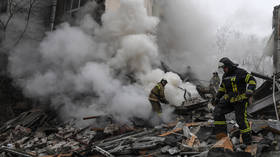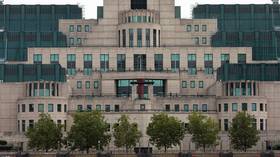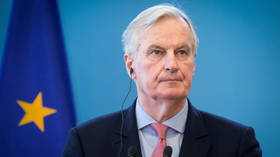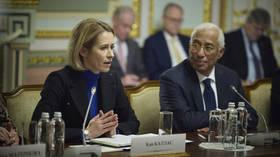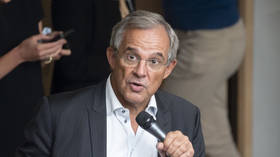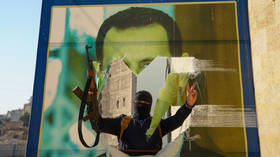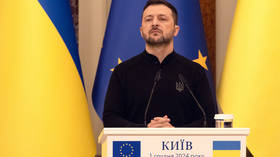EU state’s president hails ‘decisive moment’ in Ukraine conflict
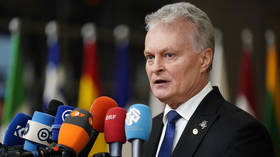
Lithuanian President Gitanas Nauseda has praised the reported decision by the US to allow Ukraine launch long-range missile strikes deep into Russian territory, describing it as a “decisive moment.”
According to a report by the New York Times on Sunday citing anonymous sources, US President Joe Biden has given Kiev the green light to deploy long-range American-made missiles against targets within Russia’s internationally recognized borders.
“The day has come!” Nauseda, who has been a staunch supporter of Ukraine during the conflict, wrote in a post on X on Sunday. “Ukraine can now target military sites in Russia using long-range missiles,” he added.
Vilnius has long urged NATO to authorize strikes on targets deep inside Russia using Western-supplied weapons, a move that some observers fear could further escalate tensions and risk a broader conflict.
“This is a decisive moment in fight against the aggressor Russia,” Nauseda claimed, adding that “peace cannot be achieved through weakness.”
Since the Ukraine conflict escalated in 2022, Lithuania has called on other NATO countries to give “everything we have” to Kiev’s forces. Earlier this year, the Baltic country joined a Czech-led ammunition initiative to procure artillery shells for Ukraine using part of the interest earnings from some $300 billion in Russian assets frozen in the EU.
In June, Nauseda pledged to spend 0.25% of Lithuania’s GDP by the end of 2024 on military, humanitarian, and economic aid to Ukraine.
His latest remarks came after Washington reportedly reversed its long-standing policy of not allowing Kiev to use ATACMS missiles to hit targets deep inside Russia.
ATACMS missiles can be fired from HIMARS launchers, which Ukraine has had in its arsenal since 2022. The long-range capabilities of the ATACMS would allow Ukraine to strike further into Russian territory, potentially disrupting supply lines and troop concentrations.
Russian President Vladimir Putin has repeatedly warned that such actions would mean NATO’s direct involvement in the conflict.
In September, Putin stated that Ukrainian forces lack the capability to carry out attacks with Western-supplied long-range missiles without external assistance. “It is not a question of allowing the Ukrainian regime to strike Russia with these weapons or not. It is about deciding whether NATO countries become directly involved in the military conflict or not,” he said.
The president added that if a decision allowing the strikes were made, it could lead to severe repercussions, including retaliation against Western interests.
